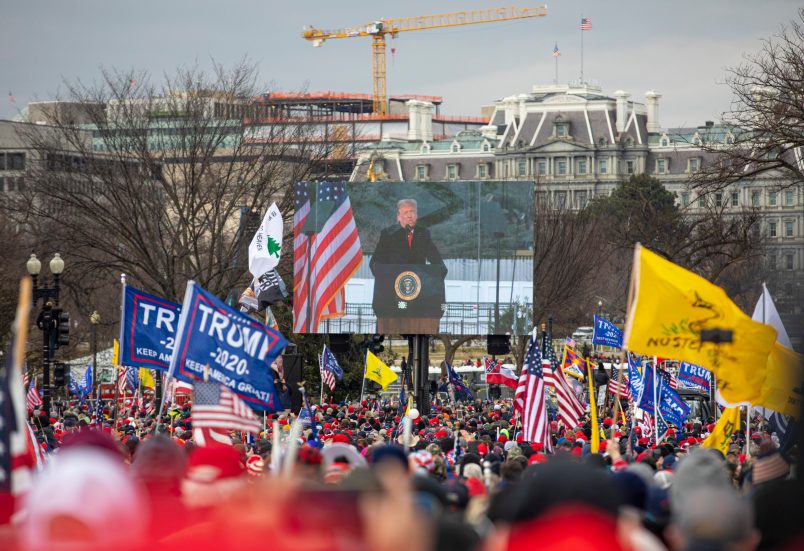Former President Trump sought to cordon off conversations and records sought by the Jan. 6 Committee on Monday, suing both the panel and the National Archives in a bid to block the investigation from accessing documents from his time in the White House.
Trump filed the lawsuit in D.C. federal court, bringing forth a barrage of legal arguments aimed at convincing a judge to throw out the subpoena or, at least, delay the probe.
The suit, signed by Trump attorney Jesse Binnall, decried the Jan. 6 Committee’s investigation as “designed to unconstitutionally investigate President Trump and his administration,” while saying that allowing the investigation to go forward would “destroy the fabric” of American government.
The Jan. 6 Committee issued a sweeping request in August to the National Archives for records relating to Trump’s spreading of the Big Lie that the 2020 election was stolen and to efforts to disrupt or prevent the peaceful transfer of power.
The former president asked a federal judge in the lawsuit to declare the Committee’s subpoena invalid or, failing that, to declare the Presidential Records Act unconstitutional.
Under the Presidential Records Act, sitting Presidents are empowered to assert whether White House records, including those of previous administrations, are subject to executive privilege. Biden did not assert executive privilege over the first batch of documents produced by the National Archives in response to the House subpoena.
A spokesman for the panel told TPM that comment would be forthcoming.
Trump cast Biden’s decision as breaking with a solemn tradition of executive branch precedent, of which he happens to be the steward. Presidents have always stood up for former presidents in matters of privilege, the argument goes.
By law, Trump does not have any privilege to assert. He can provide a recommendation to Biden on whether he believes executive privilege should be asserted, but it’s Biden’s to claim.
In this case, Biden did not assert privilege over the records. By law, Trump had a 60 day clock by which to file any lawsuit contesting Biden’s decision.
In this case, Trump’s arguments mimic those he filed during the last two years of his administration to delay and head off House investigations into his personal finances, business dealings, and administration.
Trump argued in those cases that the House requests were too broad and failed to establish any law that Congress could enact based on the information gathered in the subpoenas. He succeeded then in delaying congressional inquiries until after the 2020 election.
In this lawsuit against the Jan. 6 Committee, Trump cites those very same cases.
“No investigation can be an end in itself; there is nothing in the overwhelming majority of the records sought that could reasonably be justified as a means of facilitating the legislative task of enacting, amending, or repealing laws,” the lawsuit reads, after registering a series of complaints that the committee wants to know too much about what happened in the executive branch on Jan. 6.
Apart from potentially delaying the Jan. 6 panel’s efforts to uncover his administration’s activities around the Capitol insurrection, the lawsuit affords Trump the opportunity to play the victim.
Biden’s decision not to assert privilege, the complaint reads with a misspelling, “is a myopic, political maneuver designed to maintain the support of its political rivals and is not based on any discernable legal principle.”
If fulfilled, Trump said in the lawsuit, the request “would destroy the very fabric of our constitutional separation of powers and invade fundamental privileges designed to maintain the autonomy and functioning of the Executive Branch.”
Read the lawsuit here:






